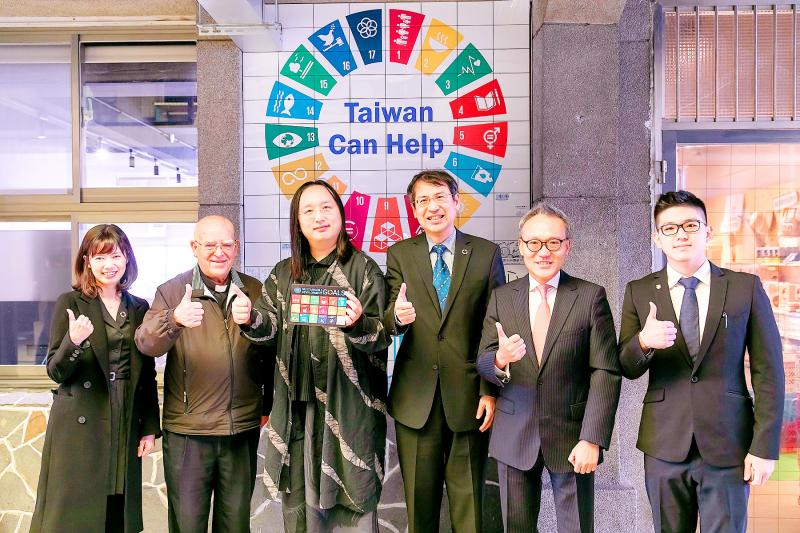Citigroup Inc has pledged US$250 billion to finance and facilitate climate solutions globally and reduce climate risk. The Environmental Finance Goal is part of the global bank’s new five-year 2025 Sustainable Progress Strategy to help accelerate a transition to a low-carbon economy. This builds on Citi’s previous US$100 billion goal announced in 2015 and completed last year, more than four years ahead of schedule.
“If there’s one lesson to be learned from the COVID-19 pandemic, it is that our economic and physical health and resilience, our environment and our social stability are inextricably linked,” Citi Asia Pacific CEO Peter Babej said in a statement.
“ESG [environmental, social and governance] has been front and center in Citi’s response to the health crisis, and evermore present in conversations with clients and communities across the Asia-Pacific. With the US$250 billion global goal, we want to be a leading bank in driving the transition to a low-carbon economy. The Asia-Pacific has a key role to play and we anticipate further acceleration in the region as businesses of all kinds shift to a more sustainable future,” Babej said.

Photo courtesy of Citibank
Citi has signaled its commitment to transitioning to a sustainable, low-carbon economy as the first US-based signatory of the UN Principles for Responsible Banking.
Citi released its 2019 Environmental, Social and Governance Report in April, detailing its performance across a number of priority ESG areas. Since the onset of the global COVID-19 pandemic, Citi has continued to deepen its ESG efforts in response to client and market demand. Citi and the Citi Foundation have thus far committed more than US$100 million to support virus-related community relief efforts around the world.
Citibank Taiwan Ltd (台灣花旗) chairman Paulus Mok (莫兆鴻) said: “In response to the group’s ESG policy, Citibank Taiwan is taking proactive measures during the pandemic to preserve the well-being of employees, serve clients and contribute to society, so as to maximize our positive impact as a responsible corporation.”
“This year, Citi Taiwan will continue to focus on ESG-related areas; further commit to environmental, social and governance efforts; and advance toward the sustainable progress goal. We will also issue our first certified ESG report,” Mok said.
Citi Taiwan has launched the Double the Good campaign, calling on all Citi Taiwan staff to show care and support for disadvantaged families, bereaved children and medical staff. Citi Taiwan would match every NT$1 that employees donate with NT$1.
To avoid large in-person gatherings, Citi Taiwan has adopted a different strategy this year by organizing multiple small-scale activities for the annual Global Community Day.
In appreciation for the hard work and contributions of Citi staff during the pandemic, Citi is offering a one-time compensation award, an extra day off and other benefits to support employees through this difficult time.

Sweeping policy changes under US Secretary of Health and Human Services Robert F. Kennedy Jr are having a chilling effect on vaccine makers as anti-vaccine rhetoric has turned into concrete changes in inoculation schedules and recommendations, investors and executives said. The administration of US President Donald Trump has in the past year upended vaccine recommendations, with the country last month ending its longstanding guidance that all children receive inoculations against flu, hepatitis A and other diseases. The unprecedented changes have led to diminished vaccine usage, hurt the investment case for some biotechs, and created a drag that would likely dent revenues and

Global semiconductor stocks advanced yesterday, as comments by Nvidia Corp chief executive officer Jensen Huang (黃仁勳) at Davos, Switzerland, helped reinforce investor enthusiasm for artificial intelligence (AI). Samsung Electronics Co gained as much as 5 percent to an all-time high, helping drive South Korea’s benchmark KOSPI above 5,000 for the first time. That came after the Philadelphia Semiconductor Index rose more than 3 percent to a fresh record on Wednesday, with a boost from Nvidia. The gains came amid broad risk-on trade after US President Donald Trump withdrew his threat of tariffs on some European nations over backing for Greenland. Huang further

Macronix International Co (旺宏), the world’s biggest NOR flash memory supplier, yesterday said it would spend NT$22 billion (US$699.1 million) on capacity expansion this year to increase its production of mid-to-low-density memory chips as the world’s major memorychip suppliers are phasing out the market. The company said its planned capital expenditures are about 11 times higher than the NT$1.8 billion it spent on new facilities and equipment last year. A majority of this year’s outlay would be allocated to step up capacity of multi-level cell (MLC) NAND flash memory chips, which are used in embedded multimedia cards (eMMC), a managed

CULPRITS: Factors that affected the slip included falling global crude oil prices, wait-and-see consumer attitudes due to US tariffs and a different Lunar New Year holiday schedule Taiwan’s retail sales ended a nine-year growth streak last year, slipping 0.2 percent from a year earlier as uncertainty over US tariff policies affected demand for durable goods, data released on Friday by the Ministry of Economic Affairs showed. Last year’s retail sales totaled NT$4.84 trillion (US$153.27 billion), down about NT$9.5 billion, or 0.2 percent, from 2024. Despite the decline, the figure was still the second-highest annual sales total on record. Ministry statistics department deputy head Chen Yu-fang (陳玉芳) said sales of cars, motorcycles and related products, which accounted for 17.4 percent of total retail rales last year, fell NT$68.1 billion, or